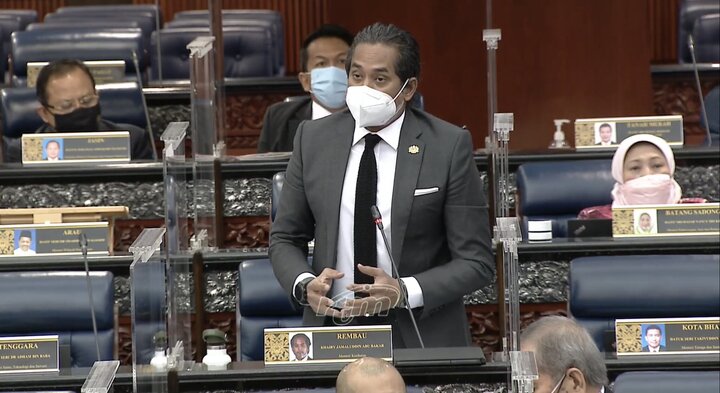KUALA LUMPUR, Sept 15 — With contract doctors comprising more than 41 per cent of the medical workforce in the public sector, Health Minister Khairy Jamaluddin today pledged to fix the contract system.
Of 55,981 medical officers employed under the Ministry of Health (MOH), 23,096 (including 19 specialists) are on contract, while 32,885 (including 5,993 specialists) are permanent staff.
Khairy said the government is looking to provide contact officers with similar opportunities as their permanent counterparts that will allow them to continue local training at the postgraduate level.
“Currently, this opportunity only applies to permanent officers, while contract officers can only apply for training via a parallel pathway. But we want to provide the same facility for contract officers so that they too can apply for federal scholarships that will allow them to pursue their training at local universities. This is for their future, and I think this is something that they’ve demanded and look forward to,” he told the Dewan Rakyat today during Question Time.
He added that a special committee had been established to prepare a comprehensive plan that consists of short-, medium-, and long-term actions to resolve the issue.
The committee is tasked to look into:
• applications for allocation for sponsorship equivalent to the existing federal scholarship;
• applications to create additional permanent posts according to the needs of the facility;
• examine strategies to increase employment opportunities in the health and private services;
• review and amend the provisions of the Medical Act 1971, the Dental Act 1971, and the Registration of Pharmacists Act 1950 as well as a more flexible implementation mechanism for specialty studies;
• review the suitability of amending the Pensions Act 1980 or introducing equivalent improvements
The Rembau MP said this is in line with efforts to shore up the number of specialists needed in the country within the next decade. Currently, Malaysia has fewer than 13,000 specialists in both public and private sectors, and requires double the amount at 28,000 specialists by 2030.
“This is causing all kinds of waiting time problems on the ground, so we need to not only optimise the facilities that we have now to cut the waiting time, but the Ministry of Finance (MOF) must also give their commitment to training these doctors to become specialists to fulfil our needs in 10 years where the disease burden is expected to rise in line with our ageing society and the higher incidence of non-communicable diseases (NCDs).
“This will require a high number of experts that we need to train from now,” Khairy said.
The government earlier agreed that contract officers who complete their compulsory service will be offered a two-year contract extension to ensure continuity of service and enable them to prepare for their specialist studies.
“Within two years of the extension of this contract, if the officer is offered specialist study, then the officer will be offered an extension contract for another four years to complete the specialist study,” Khairy said.
The Ministry of Health (MOH) introduced the contract doctor system in 2016 to reduce the glut of medical graduates waiting for housemanship from over 30 medical schools nationwide.
Khairy said the number of medical graduates has increased from about 3,000 annually between 2009 and 2015, to about 5,000 to 6,000 per year since 2016.
Hundreds of contract doctors launched a nationwide stop-work strike on July 26, defying threats of punishment to protest against the government’s contract scheme for junior doctors.








